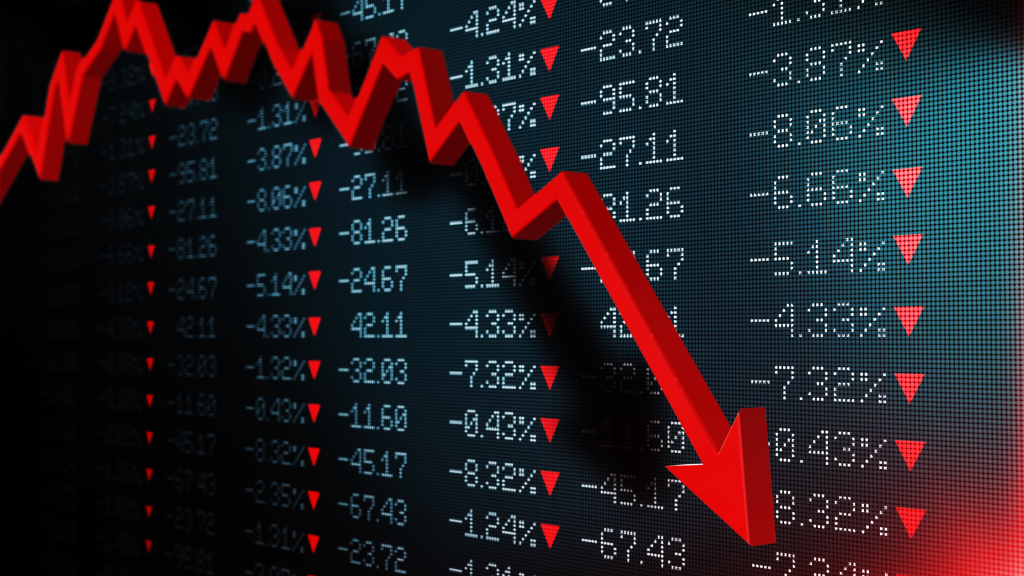VIEW BY TOPIC
- Finding Customers
- Business Systems
- Managing Employees
- Leadership
- Managing Money
Related Posts

Ready to Grow Your Business Fast?
Here’s How I Grew Five Businesses, and Eventually Sold One to a Fortune 500 Company.

Investing in Stocks: Pros and Cons They Don’t Tell You in 2023
Investing in stocks is a great way to build wealth, but it’s not for everyone. As you’ll learn in trading 101, the stock market is not a get-rich-quick scheme; it’s a long-term investment. If you’re not careful, Stocks can also yield disappointing returns. In this article, we’ll look at the pros and cons of investing in stocks so that you can make an informed decision about whether or not it’s right for you.
Stocks are a type of investment that shares ownership in the ownership of a company. You can buy them through a stockbroker or an online broker, and they’re not guaranteed to make you money—but they can be very rewarding if they do.
The Upsides of Investing in Stocks

There are many ways in which you can get started investing in stocks. Some people prefer to set up an online brokerage account, while others prefer the good old-fashioned paper option. Regardless of your preference, there are some very good reasons why starting with stock investing is a great idea:
You can start with very little money. This may sound obvious but it’s often overlooked by beginners who want to get into this market as quickly as possible without having to worry about how much they have or what kind of return they’re getting from their investments (or lack thereof).
If you find yourself starting with nothing at all, then consider opening an account! Reliable Stock Research Sites can help you find the best stocks to invest in, and they offer a variety of tools to help you make your investment decisions.
Stay Ahead of Inflation
Inflation is a threat to many investors and one of the most common reasons people don’t invest in stocks. If you’re worried about inflation, there are two ways to keep yourself ahead of it:
Investing in stocks can help you stay ahead of inflation. Stocks are a good hedge against inflation because they tend to rise along with prices for goods and services like food, clothing, housing, and transportation—all things that cost money (inflation). The higher their value goes up over time, the more your investments will grow at least on paper!
Build Massive Wealth
The power of compounding interest. You might have heard the saying “time is money” and you’ve probably used it yourself to explain why saving your money is important. But what if I told you that every hour, minute, or second counts? That’s right: time can be used as currency—and that includes investing in stocks!
Building massive wealth early on is one of the best things about investing in Google stocks. If you start early enough with an initial investment amount, then over time (compounded), more money will come into your account than what was originally invested for there to be no growth at all (or even loss).
Liquidity
Liquidity is the ability to convert an asset into cash quickly. It’s a major concern for investors because it allows you to get your money out when needed. If an investor has a choice between two assets, one of which has low liquidity (i.e., they can’t be easily converted into cash) and another with high liquidity (you can easily sell), then they’ll probably choose the latter—even if that means paying a slightly higher price for it.
The more liquid an asset is, the easier it is to sell quickly; this makes stocks more appealing in times when markets are volatile or there’s uncertainty about future events like elections or recessions.
Quick Access To Your Money
You can access your money quickly. If you need cash, you can sell your stock at any time and get it back on the same day or even within hours. This also applies to paying off debt or buying more shares of stock if they’re undervalued.
If this sounds like something that would help people who don’t have enough money but still want some extra cash, then there are plenty of ways to do so with cryptocurrency like Bitcoin or Ethereum instead of traditional stocks!
The Downsides of Investing in Stocks

The risks of investing in stocks are higher than in other investments. Stocks are more volatile and risky than bonds, so they’ve got a higher chance of losing money over time. On top of that, they’re less liquid—meaning if you want to sell your stock after it’s gone down in value, you might have trouble finding someone willing to buy it from you at an affordable price (or if they do offer one, their terms might be too favorable). If this happens repeatedly over time and eventually builds up into a full-blown crash—which has happened before—it can leave investors with nothing but pain and expense as their portfolio tanks along with other stocks’ values.
Returns are Not Guaranteed
The return on your investment is not guaranteed, and you may lose money in the short term or long term. It is important to remember that investing involves risk. You should never invest more than you can afford to lose.
Volatility: Stock investment is volatile. The stock market can fluctuate wildly, and this causes people to lose money. If you don’t know what you’re doing and how these fluctuations affect your investments, then it’s easy for a mistake or bad luck to wipe out all your hard-earned money.
It Takes Time
It’s easy to get discouraged and give up when you don’t see immediate results. That may be because the stock market is volatile, or it could be that your investment strategy isn’t working as well as hoped. But if you stick with it, eventually your hard work will pay off in the form of financial freedom. You won’t make money overnight, so don’t get discouraged when you see some fluctuations. It may take years before you can enjoy the fruits of your labor, but if you’re patient and consistent, you’ll be well on your way to financial freedom.
You Can Lose Some Money
If you don’t know what you’re doing, it’s possible to lose money. Even if you do know what you’re doing, the stock market is volatile and unpredictable. That means that even if your investments go up in value over time, there’s still a chance that they could crash down just as quickly.
This isn’t something investors should take lightly: when investing in stocks (or any other type of investment), it’s important to be cautious. The truth is, even if you know what you’re doing and have a plan for investing in the stock market, there will always be some risk that things won’t go as planned. That’s just how it works — even if you’re an expert at investing in stocks.
Risk
Risk is one of the biggest factors that come into play when you’re investing in stocks, and it’s something you should never forget. The truth is, no matter how good a company may seem or how much money it has made over the years, there’s always a chance that you could lose your investment if something goes wrong. This is especially true if you don’t do any research before investing in a company–or even worse if you invest in just one stock because someone else tells you it’s going to be profitable!
Keep in mind that risk is a part of investing and can be managed. It’s not the same as volatility—as mentioned above—but it’s still important to understand how you’re investing your money and what potential losses you might face if things don’t go according to plan.
Conclusion
Investing in stocks is a great way to build wealth, but it also comes with risks. Stocks fluctuate, and they can go down as well as up. If you aren’t careful, you could lose your money! That’s why it’s important to know how the stock market works and what you can do to protect yourself from risk. Even if you are investing, make sure that you have a plan in place before you start throwing your savings into a single company or industry.














